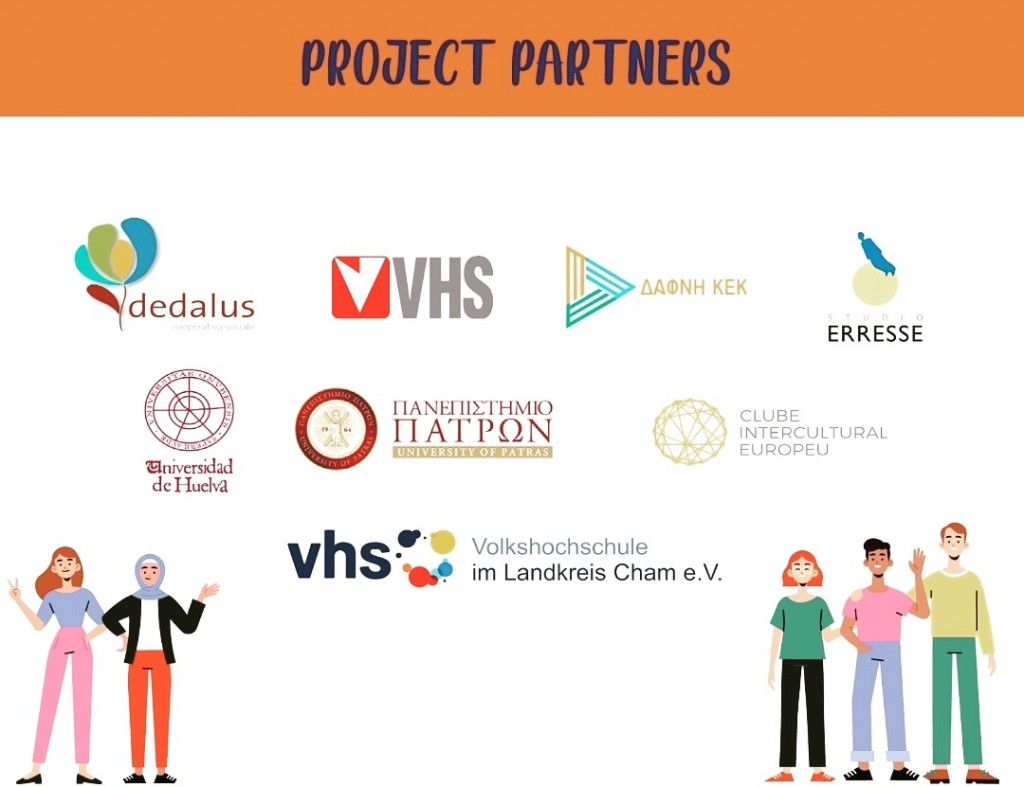Tags
Post written by Laura Zarzuela
“Literacy is an entrance to the world” claimed Dr. Katarina Popovic, General Secretary of ICAE (International Council for Adult Education) in 2016. She asked UNESCO the following question: “If we have this view about literacy, why are there still adults who are not given opportunities to be educated?” Since the moment Secondary Education became compulsory, it seems that it is more difficult to meet people who are not able to read or write in Europe. However, although it is something positive, it is not enough, because as Paulo Freire affirmed, it is not about reading the words, but reading the world. It is, above all, a human right and a portal to other rights. Education must be a fundamental right. Without it, people will have an enormous disadvantage to face life, since it is essential for a good social and labour integration. Despite this, there is still a large amount of adult population that is not literate. Progress in adult literacy continues to be slow, and the investment of funds and political will is still required.
In Spain, the 11,1 % of the adults born between 1933 and 1942 got a high school certificate, while the percentage increases till 64,1 % for the adults born between 1975 and 1984. Despite this important progress for the new generations, there is still a 33,8 % of 25-34- year-old population who only has a primary education certificate. Besides, the participation of adult population in educational and training activities is quite low, 10,5%, far from the objective of 15%. Regarding non-formal training, in Spain there is a special concern for youth under 25 years, who are greatly affected by unemployment. In relation to this, the national association Second Chance Schools was founded to provide solutions to the so-called NEETs (Not in Employment, Education or Training).
As for the educational training for migrants, there is no specific mention to this population in the national education laws. But the laws related to the rights and freedoms of foreigners and their social integration state that migrants from 16 to 18 years have the same right to education as Spanish people; the situation for older migrants depends on whether they have residence permit. However, the most recent statistics inform that 8,8 % of the students enrolled in primary and secondary general education system are foreigners. Among this population, young foreigners aged between 18 and 24, the school dropout rate (35,1%) doubles that of Spanish youth (15,4 %).
All this situation adds up to a further problem, the fact that a part of the adult Spanish population, whether they are Spanish by birth or from other nationalities, are in an educational “limbo” when they get over 16-18 and are released from compulsory education. The circumstances of these population can be diverse, for example, unaccompanied minors who turn 18, European or non-European immigrants, adults in situations of poverty and social exclusion, etc.
This issue is approached by the project “NEver TOO LAte” (NEw TOOls for Learning in Adult age), an Erasmus+ project carried out by institutions of six European countries: Austria, Germany, Greece, Italy, Portugal and Spain.
The aims of the project are:
- To develop tools to encourage young people and adults with poor or no schooling to improve and/or to develop their functional literacy, numeracy and digital skills.
- To improve social and citizenship skills such as the ability to act as responsible citizens and to participate fully in civic and social life.
- To increase the ability to learn how to learn.
Something that these participant countries have in common is that they are affected, in some way, by the progressive general impoverishment, due to the economic, social and cultural crisis; political issues related to the lack of measures in favour of processes of integration and inclusion; high unemployment rate; or the coming migratory waves from countries affected by poverty and conflict.
Which groups of the adult population are these objectives aimed at?
- Women at risk of exclusion and victims of trafficking and sexual/labour explotation.
- Young people aged 16-30.
- Young and adults of ROMA ethnicity, both males and females.
- Unaccompanied foreign minors no long subject to compulsory schooling (over 16)
How does NEver TOO LAte work on this issue?
- By doing comparative research, with the analysis of methodologies and positive experiences in the participant countries in the field of interest of the project.
- By creating a multimedia library: “MyDigital FlipBooks” for the use of professionals, to support young people and vulnerable adults on lifelong learning paths.
- By developing a basic learning platform compatible with all digital devices and aimed at motivating young people and adults to complete basic learning paths and citizenship skills.
What are the expected results?
- That the largest number of adults and young people, from the EU and other countries, with poor or no schooling at all, get motivated to develop/improve functional literacy, numeracy, digital, social and citizenship skills according to their needs and aspirations of social inclusion.
- That professionals improve their skills to motivate the project’s target groups to learn and also to develop their skills.
- That effective strategies of “awareness, orientation and motivation to learn” are implemented at the community level, for the benefit of particularly vulnerable non-literates.
How is ReALL involved in this project?
Eight entities from the above-mentioned countries work on the project:
In the case of Spain, our research group ReALL (from the University of Huelva) is collaborating in the project. For now, a study is being carried out on how permanent adult education is regulated at national, regional and even local levels, focusing on the kind of training adults receive and the opportunities offered to them, in relation to their circumstances and needs. Besides, interviews with educators and learners are being gathered, as well as, the observation of some classes.
In the next moths the first Multiplier Events will be held at the University of Huelva, in order to share the findings of the first intellectual output. The event will be announced in our website and on social media.
Stay tuned for further details!
If you want to know more about the project, this is the official website: http://nevertoolateproject.eu/about-project/
Or you can follow the updates via:
Facebook: https://www.facebook.com/newtoolsforlearninginadultage/
Twitter: https://twitter.com/Nevertoolate_eu
Instagram: https://www.instagram.com/nevertoolateeuproject/
Readings
Consejo Escolar del Estado. (2019). Datos y principales indicadores del sistema educativo español. Resumen del Informe 2019. MINISTERIO DE EDUCACIÓN Y FORMACIÓN PROFESIONAL. SECRETARÍA GENERAL TÉCNICA https://www.educacionyfp.gob.es/dam/jcr:713cb2fc-1c9e-4861-90a6-048b44fd309b/i19cee-resumen-informe.pdf
OECD. (2013). Survey of Adults Skills (PIACC). Spain Country Note. https://www.oecd.org/skills/piaac/Country%20note%20-%20Spain.pdf
Un modelo de éxito, una asociación nacional. (2016). Escuelas de Segunda Oportunidad España. https://www.e2oespana.org/
UNESCO. (2016). La alfabetización le abre una gran puerta al mundo, pero millones de adultos todavía permanecen afuera.
http://www.unesco.org/new/es/media-services/single-view/news/literacy_opens_wide_a_door_to_the_world_but_millions_of_adul/



